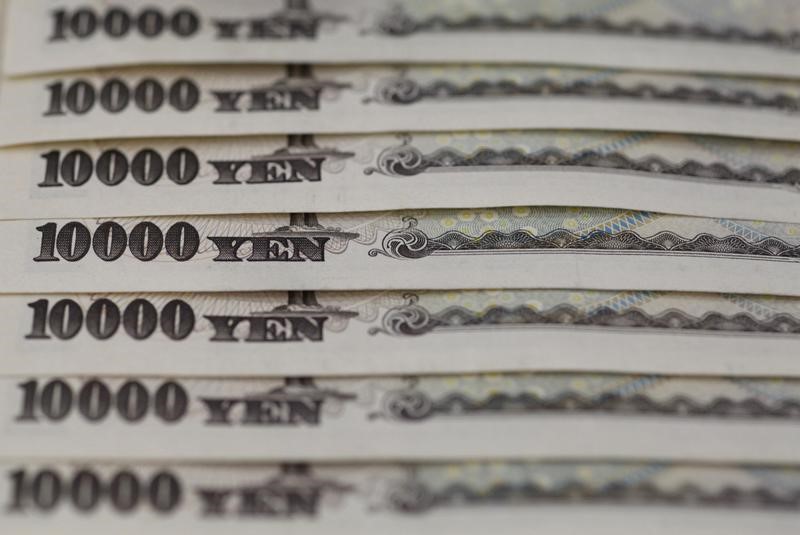Investing.com-- Most Asian currencies weakened on Tuesday, while the dollar firmed slightly as traders awaited more cues on U.S. interest rates from the Federal Reserve.
Weakness in the Japanese yen persisted, with the currency moving back towards levels that had last attracted currency market intervention by the government.
Waning optimism over China also factored into markets, as traders waited to see how Beijing would roll out its recently unveiled stimulus measures.
Japanese yen weak as USDJPY rises past 156
The USDJPY pair, which gauges the number of yen needed to buy one dollar, rose 0.2% on Tuesday and traded well above the 156 level.
The pair had reversed a bulk of its declines made on currency market intervention by the Japanese government to support the yen, and was now less than 4 yen away from levels that had last attracted intervention earlier in May.
While this kept the yen’s losses measured, the currency still faced more weakness in the face of persistent pressure from U.S. interest rates.
Uncertainty over the Bank of Japan’s plans to begin tightening policy also presented a dour outlook for the yen.
Dollar edges higher with more Fed cues on tap
The dollar index and dollar index futures rose about 0.1% each in Asian trade.
The greenback was underpinned by more comments from Fed officials that the central bank still needed more convincing that inflation was falling, and that interest rates were likely to remain unchanged in the interim.
This put the minutes of the Fed’s late-April meeting- due on Wednesday- squarely in focus, for more insight into the bank’s stance on rates.
Several more Fed officials- chiefly the members of the bank’s rate-setting committee- are also set to speak in the coming days.
The prospect of high-for-longer U.S. rates bodes well for the dollar and poorly for more risk-driven, high-yielding currencies.
Broader Asian currencies retreated on this notion. The Chinese yuan’s USDCNY pair rose slightly, remaining in sight of a six-month high. Optimism over China’s stimulus measures was also seen cooling in recent sessions, as traders awaited more positive economic readings.
The Australian dollar’s AUDUSD pair fell 0.2% even as the minutes of the Reserve Bank’s May meeting showed policymakers had considered a rate hike due to sticky inflation. But they eventually settled on a hold.
The South Korean won’s USDKRW pair rose 0.4%, while the Singapore dollar’s USDSGD pair rose 0.1%.
